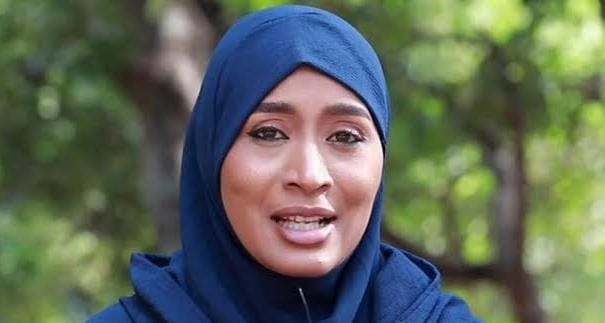Allegations of Workplace Harassment Rock BBC Hausa, Prompting Calls for Investigation

The BBC Hausa Service has come under fire following serious allegations of workplace harassment and bullying, with former staff led by veteran journalist Halima Umar Saleh, speaking out about toxic conditions within the organization.
Halima, who now serves as Senior Digital Editor at TRT Afrika, shared her ordeal during a recent interview with AREWA24, revealing that she suffered sustained harassment from a male colleague during her nearly ten-year tenure at BBC Hausa.
Describing the experience as one of the most painful periods of her professional career, Halima recounted and said “there was someone who seemed to hate me for no reason. He threatened to have me expelled from the BBC and constantly harassed me. When I asked what I had done wrong, he admitted that I hadn’t done anything at all that I was good at my job.”
Read Also:
Rotary Donates Kits to Pregnant, Nursing Women in Katsina
According to her, the final threat came just two days before Ramadan. “I prayed never to be humiliated again. Ramadan began in May; by September, I got a message on LinkedIn inviting me to TRT World.”
Halima joined BBC Hausa in December 2014 as a Multimedia Journalist and rose to Senior Digital Journalist before exiting in early 2023. When asked whether she would ever consider returning, her response was unequivocal, “No, no! Once I move forward, I don’t go back.”
Notably, the AREWA24 interview was mysteriously deleted shortly after airing, fueling speculation and public concern.
Her revelations opened the floodgates for other former employees to share similar experiences. Jabeer Mustapha Sambo, also a former BBC Hausa journalist, backed her claims saying “everything Halima said is true. I was also abused by the same man. What I faced was even worse. I fell into depression, I couldn’t sleep or eat. I dreaded going to work. Eventually, I resigned. I knew I would never return to the BBC.”
Another ex-staffer, Mo Sani Aliyu, echoed the concerns, saying the alleged abuser remains at the BBC and continues unchecked.
“I also resigned because the work environment was no longer safe. There must be an investigation into what’s happening at BBC Hausa.”
Current BBC journalist Fauzia Tukur questioned the deletion of the video:
“The focus should now shift to staff welfare at the BBC. Why was the video pulled down? Does it mean Halima’s claims were valid? Enough is enough.”
Reactions have extended beyond the media industry. Dr. Muhsin Ibrahim, a lecturer at the University of Cologne, Germany, criticized the apparent inaction saying:
“Had this happened in the UK, the BBC would’ve launched an investigation immediately. No one, especially women, should face harassment at work. Justice must prevail.”
Under the UK’s Equality Act 2010, workplace harassment especially based on sex or race is illegal. Though Nigeria lacks a specific law on workplace harassment, the constitution upholds the right to dignity and freedom from discrimination, and victims may seek redress at the National Industrial Court.
Despite the BBC’s international reputation for impartiality and integrity, these allegations paint a troubling picture of the internal culture within its Hausa Service in Nigeria.
With mounting testimonies and increasing public pressure, journalists, rights advocates, and critics are calling for an independent investigation. Many warn that silence could embolden abusers and endanger more journalists particularly women in the future.
As one former staffer summed it up that “everyone knew it was a toxic environment. That man could bully you openly, and nothing would happen. It became normal.”
Now, all eyes are on the BBC whether will it take action, or continue to stay silent?



